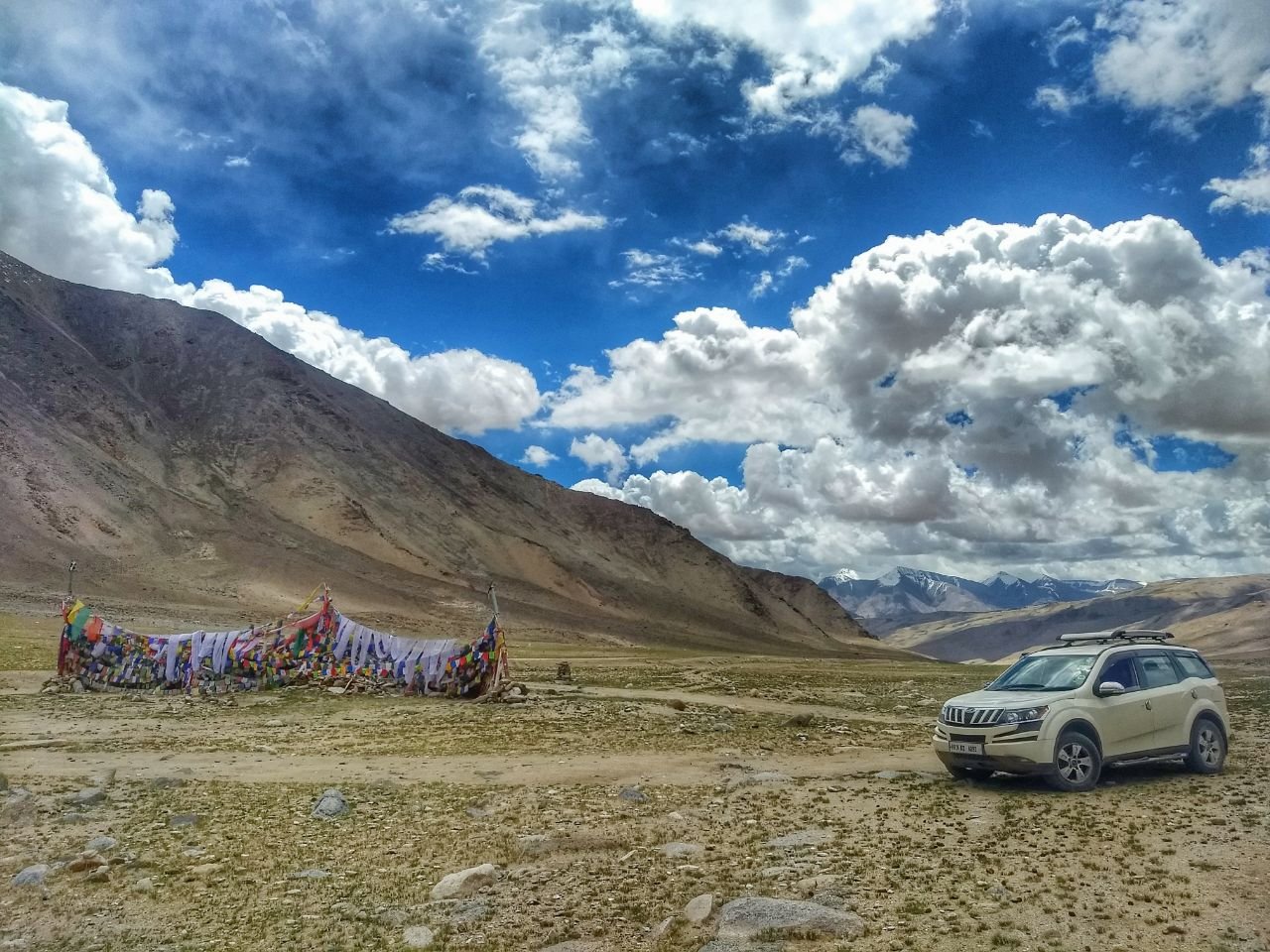
Shot on way back from Tso Moriri - it was 16000 ft+ here
I am giving you a good warning - this is a LONG post as its got everything (well almost) you need to know about Ladakh which means you need time to read and understand. But its so totally worth it.
Imagine driving at half the altitude of that of a commercial airplane. That's nearly double that of the highest unpaved cycle roads of Europe. Which is also equal to the second highest mountain peak of USA. Your lungs beg for fresh oxygen, the car's engine gasps for air - but you are 5.5 kilometers above the surface of sea. Sounds interesting? Read on...
India is a diverse country and this includes our landscape / topography. The Northern part of India is covered with snow capped mountains and nestled in these mountains or Himalayas is Ladakh! I came back from my 7th Ladakh roadtrip this month and decided to pen down stuff for those who have been looking forward to driving / riding around Ladakh someday. Here we go...
Before I start, please tag those you think would be interested or share the link with them :)
What is Ladakh?
I won't get into official or technical details but Ladakh is a vast region of high altitude plains, high altitude lakes and high altitude passes in the norther state of Jammu and Kashmir. Leh (a city) is often regarded as its capital.
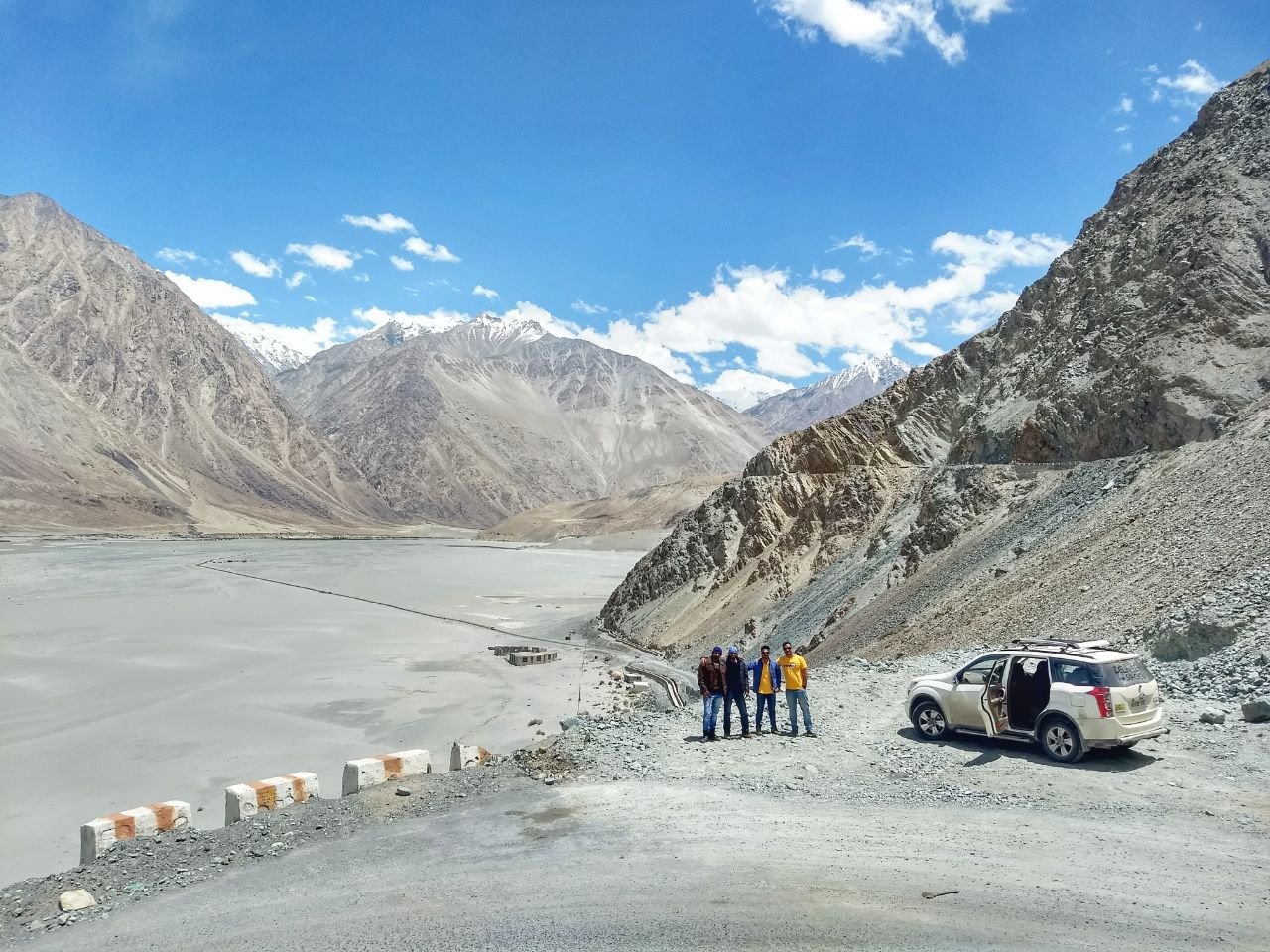
Just another view-point. This is near Nubra valley
How to get to Ladakh
There are two ways of getting yourself to Ladakh. The easier one is by booking a 1.5 hour flight from New Delhi : it bypasses the wonderful and adventurous road journey and hence I will not talk about it here.
The second way (which I have always taken) is by road. And there are two ways to reach by road as well. The longer way is via Kashmir valley and Srinagar while the quicker way is via Himachal Pradesh and its bustling town of Manali. A lot of people do a complete loop by going from one side and coming back from the other but unfortunately Kashmir has been a victim of terrorism which has resulted in most driver / riders opting for option 2 - that is via Manali.
How many days are enough?
It depends on what you want to see. Typically, a 10-12 day schedule will allow you to cover almost all the important and fascinating locations. This includes lakes, passes, sand dunes, isolation, forts, palaces, markets, rest days etc.
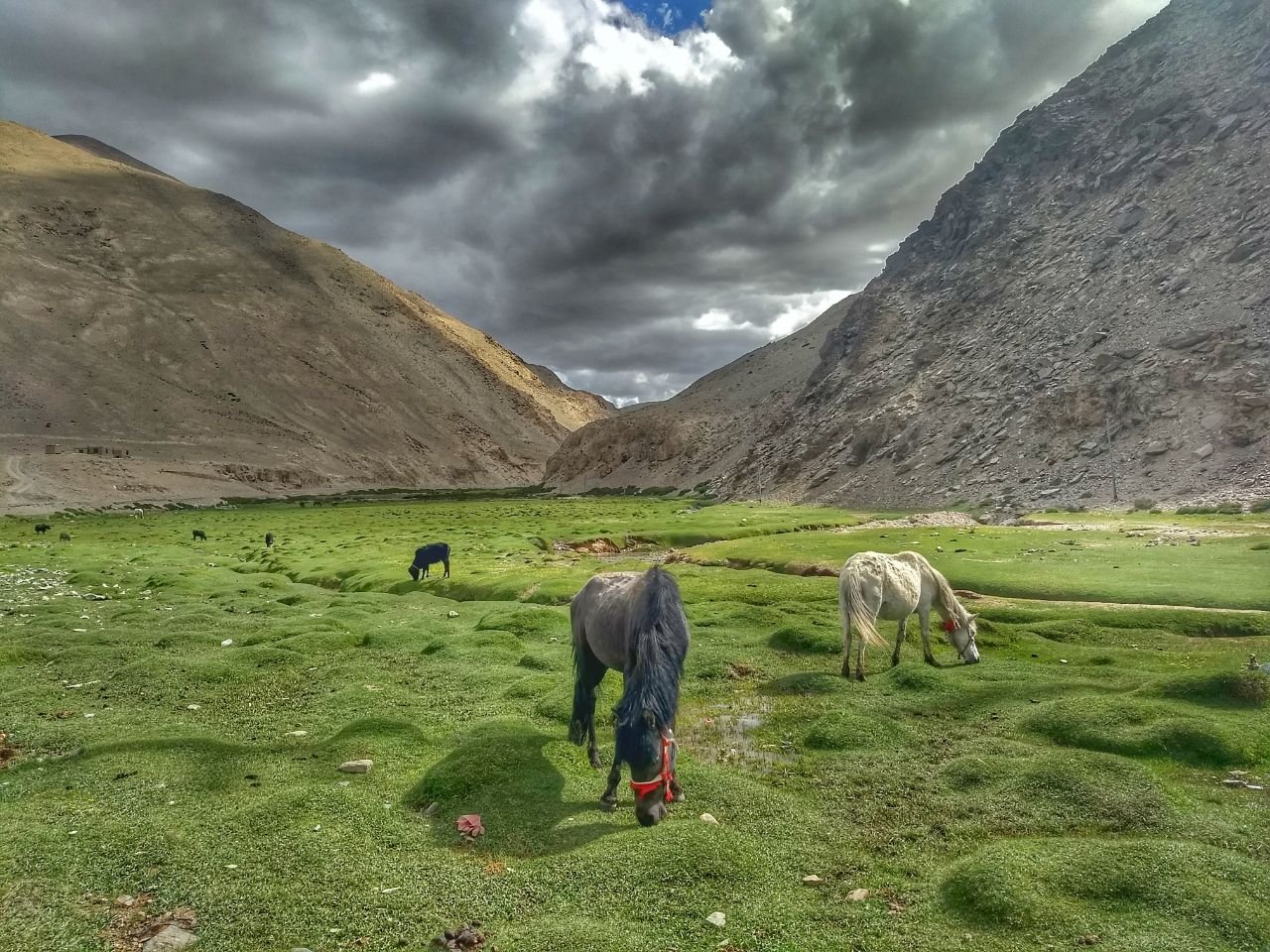
They aren't too friendly - always remain away from humans / cars
When to go to Ladakh
This is a very important factor. High altitude passes remain closed for about seven months in an year. The entire stretch to Ladakh from the North Indian plains opens completely by early June but closes by mid October. Its a small window and this is where the action is. However, by flight, Ladakh remains open for over 300 days in an year (barring bad weather).
A car or a bike?
I would say both the vehicles have their own ups n downs. A car allows you to be cosy, relaxed and comfortable. But it does not 'attach' you to the elements properly. Do it on a motorcycle and you will find your inner self. The biting cold, the suffocating dust, the tiring aches and that 'freedom' feeling. Weather can change anytime which means on a motorcycle, you need to be tough and strong.
The real thing - typical itinerary
Lets make New Delhi the starting point. Its the capital of India, has ample international connections, awesome hotels, cheap markets and everything you need for your first Ladakh trip.
Day 0 : New Delhi
Day 1 : New Delhi to Manali
The first day is one of the longest ones. Manali is situated at 6100 feet above sea level and is the base for numerous treks and most Ladakh trips. It is 550km from Delhi and includes about 320km of four-lane highways and 230km of mountain roads - mix of good and bad. It takes about 11 driving / riding hours plus breaks ofcourse. Leave Delhi by 5am and you will be in the cosy confines or a hotel in Manali by 5-6pm.
PS: The driving time to Manali will reduce by 3 hours by next year, thanks to an all-new four lane mountain road.
Day 2 : Action starts: Manali to Jispa
Its a short 130km journey today, but one that takes about 6-7 hours. And this is because of the first pass - Rohtang. Rohtang in local language means 'a pile of corpses' - this mountain pass is so unpredictable and harsh, it can catch you by surprise. The road leading to it is also very challenging at places, giving you enough hints of things to come by the next day.
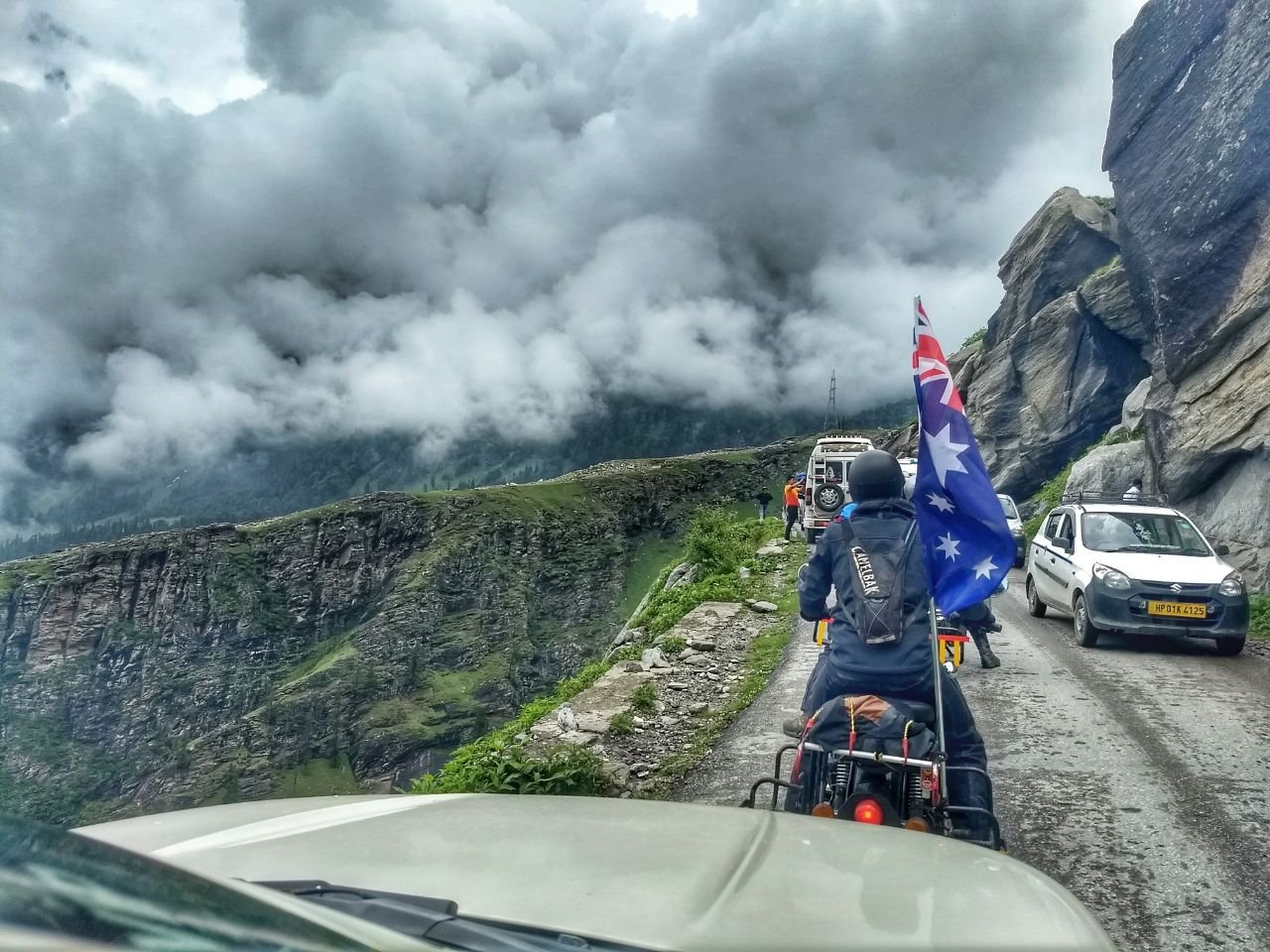
Traffic jams enroute Rohtang are common
Rohtang is 50km from Manali but takes 3 hours with traffic, 2 without it. In the peak season of June, this climbs to 4-5 hours.
At 13000 ft, Rohtang offers a spectacular view of the peaks around. The next 10-12 kilometers are slow and tough. No road, just a bed of sharp rocks, steep curves and a massive valley on one side.
The last 70 km to Jispa are mostly good and has lot of places to take a break and soak in the vistas. Jispa is full of camping options - a good idea to chill at 11000 ft.
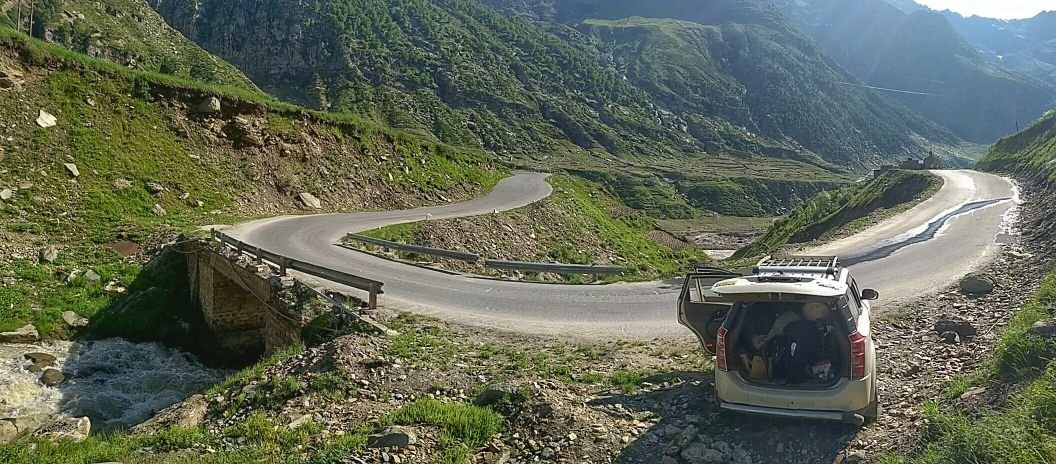
This is between Rohtang and Jispa
PS: You need a permit to cross Rohtang (available online). Mobile connectivity reduces drastically. No fuel pump after Tandi (or about 100km from Manali)
Day 3 : Jispa to Leh (welcome to Ladakh)
Its a long 345km journey which takes 9-10 driving / riding hours. There are four mountain passes to tackle, two of which are cold / wet and two are dry and rough. The last one is the second highest pass of your journey.
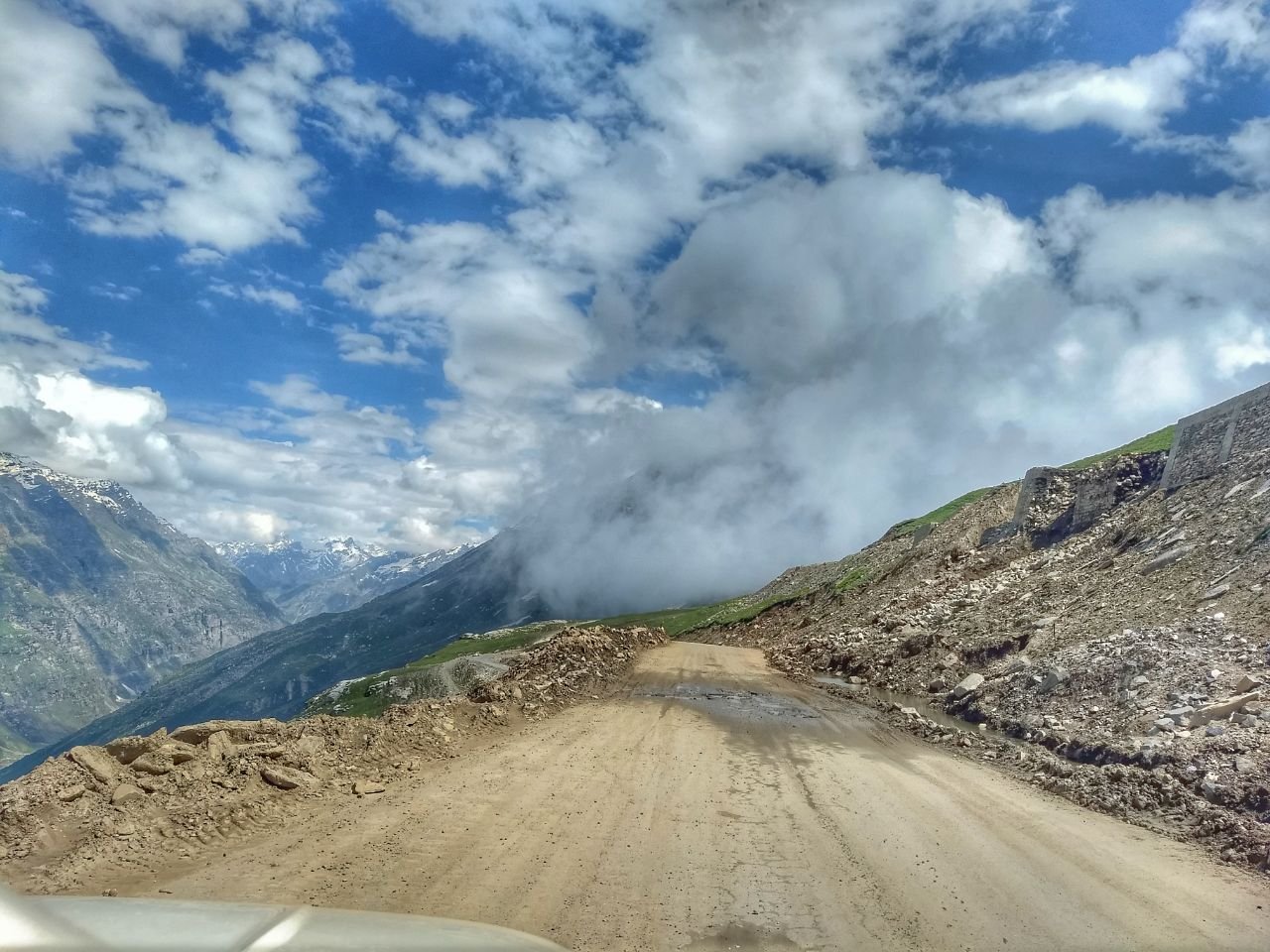
Consider this as a 'good' road : some places are a pain. But beautiful
Road conditions are good for the first one hour but turn average and then bad till Pang, a place known as the highest transit camp in the world. A good place for lunch too. The last 140km to Leh (capital of Ladakh) are fast with mostly good roads including straight stretches at a place called "More Plains" - one of the highest places in the world where you can use the cruise control for kilometers....
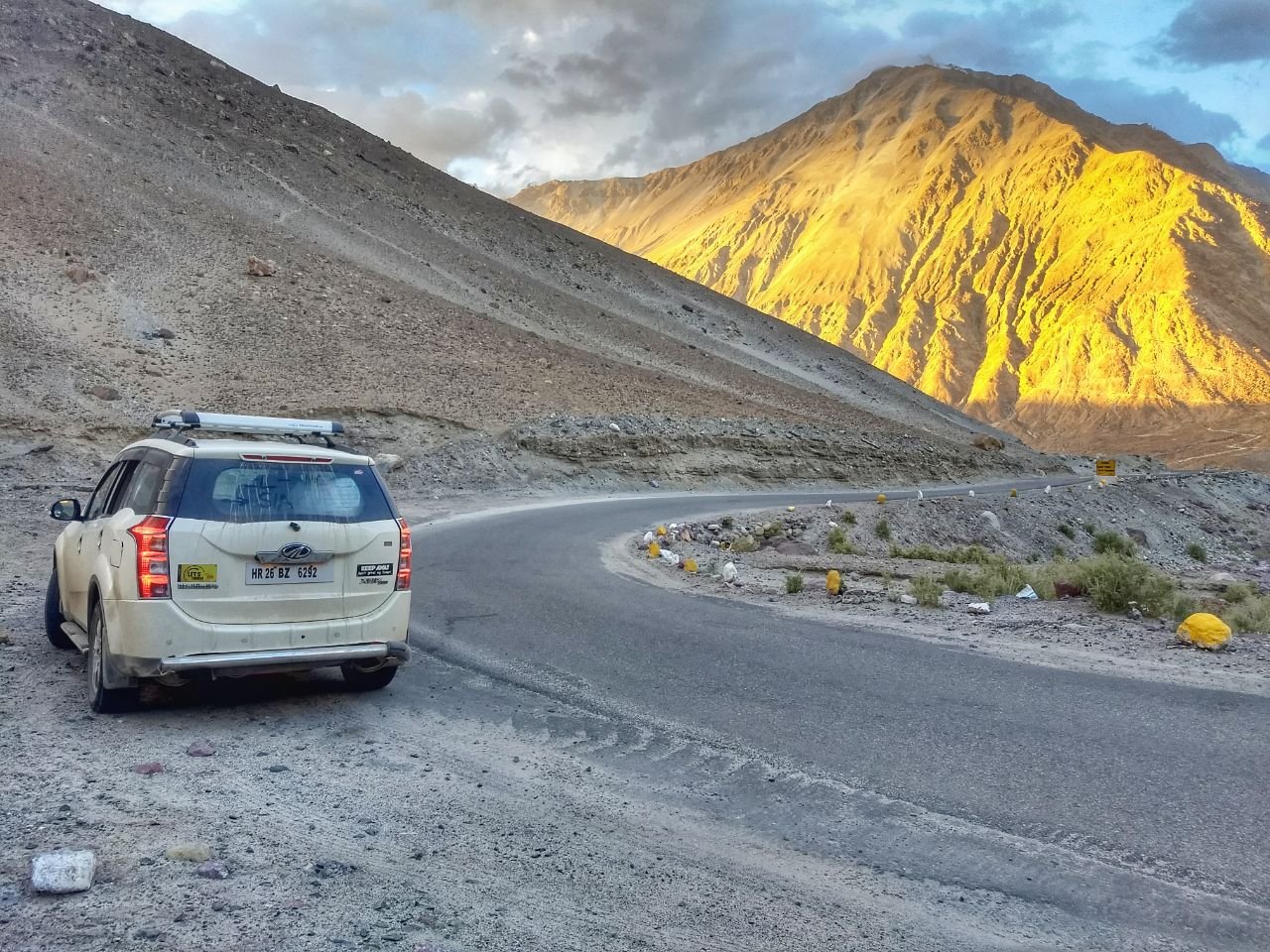
Playing with the shadows
PS: BSNL connection works at some places. Leh is good for BSNL / Airtel / Vodafone.
Day 4 : Take it easy - you deserve a break
If you ride to Ladakh, you definitely need a day off. Wake up late, have a lazy brunch, laze around, get the permits sorted (yes, new permits to go beyond Leh, easily available), shop around, fix the bike, get a shave, call loved ones and prepare for the next few days.
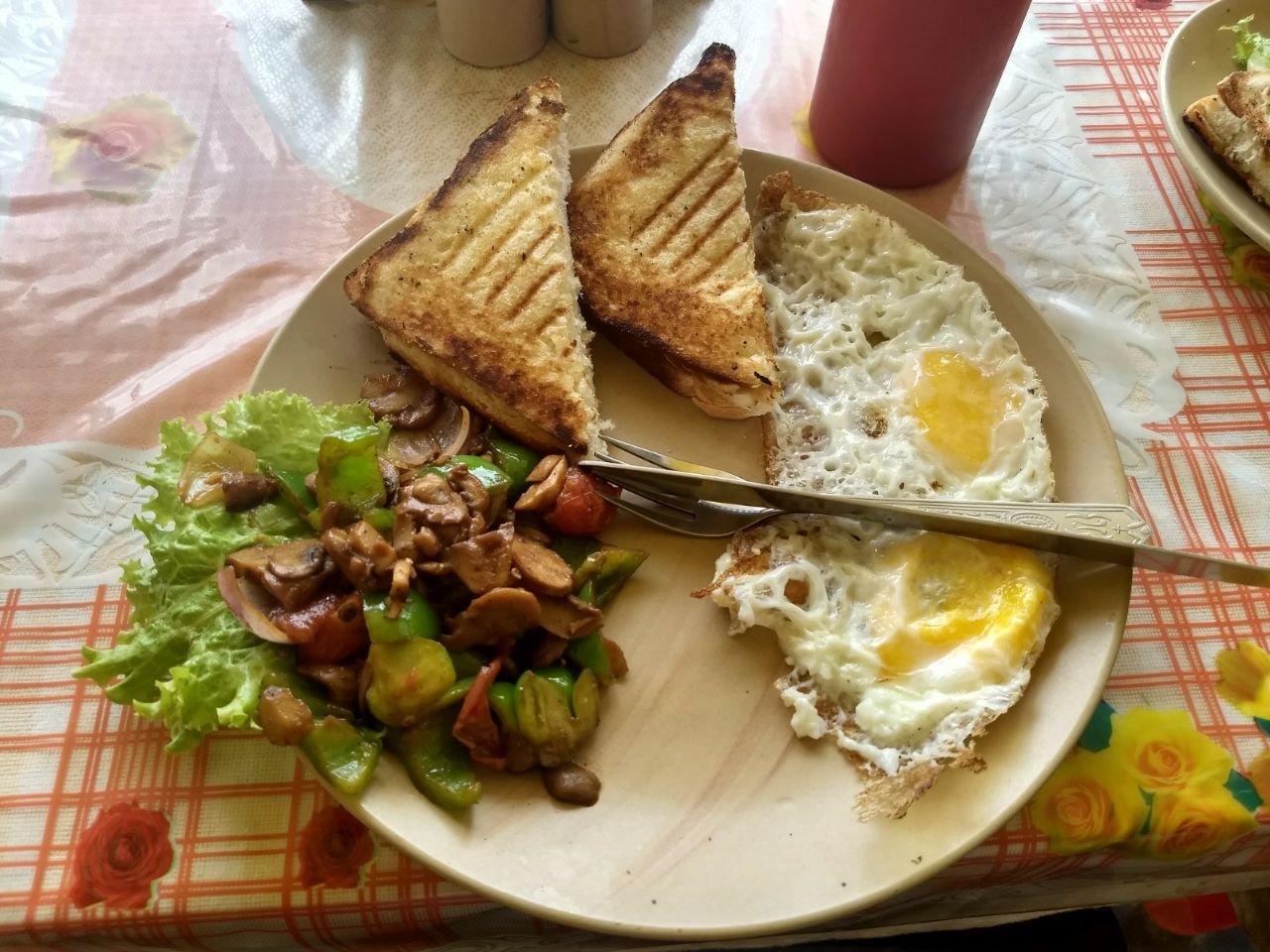
Treat yourself to a tasty brunch at one of the numerous good cafes in Leh
Leh is a big town and has everything you need! If you get time, head out for local sightseeing to places like Shanti Stupa / Leh Palace
Day 5: Back on the road - to the world's highest road
Leh is situated at 11000 feet. 40km later, you are at over 18000 feet : Khardung la (la means a pass) is over 18,000 feet above mean sea level. First 15km are good, next are bad. Streams on the road, ice at places, construction work, road blocks BUT view of the city and its greenery always by your side in the valley below.
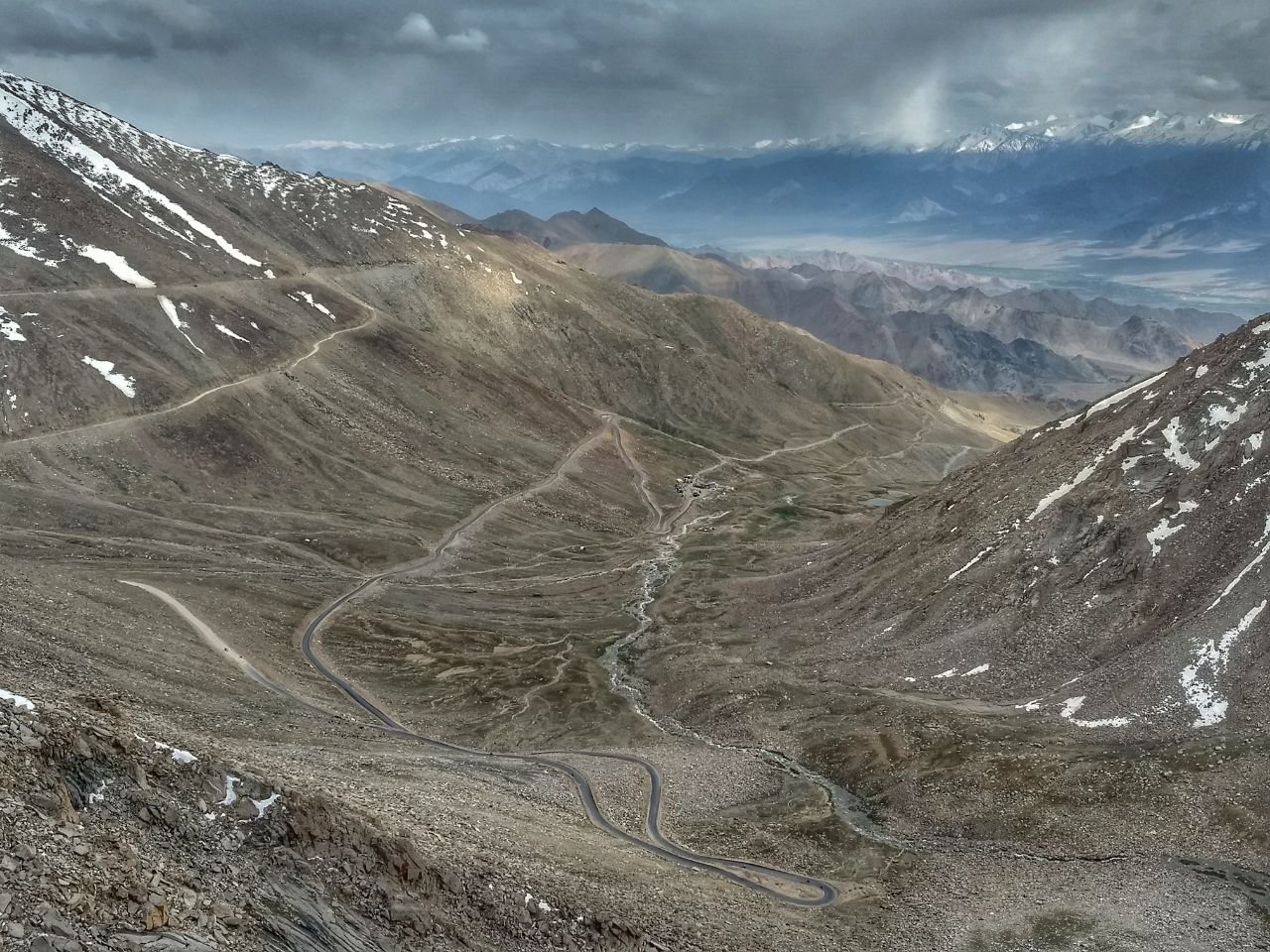
The climb up from Leh to Khardung la pass
You start climbing above all other peaks and temperature drops drastically. It can snow anytime - no warning and the area becomes white. But once up there, the feeling of posing with the sign-board overcomes you. Its an achievement. Only a fraction of the world has done it. At that point of time, you are among a handful of people at such an altitude. But do not spend too much time here. Head over to the canteen (worlds highest) to grab some coffee or tea or noodles. And then drive/ride ahead to other side.
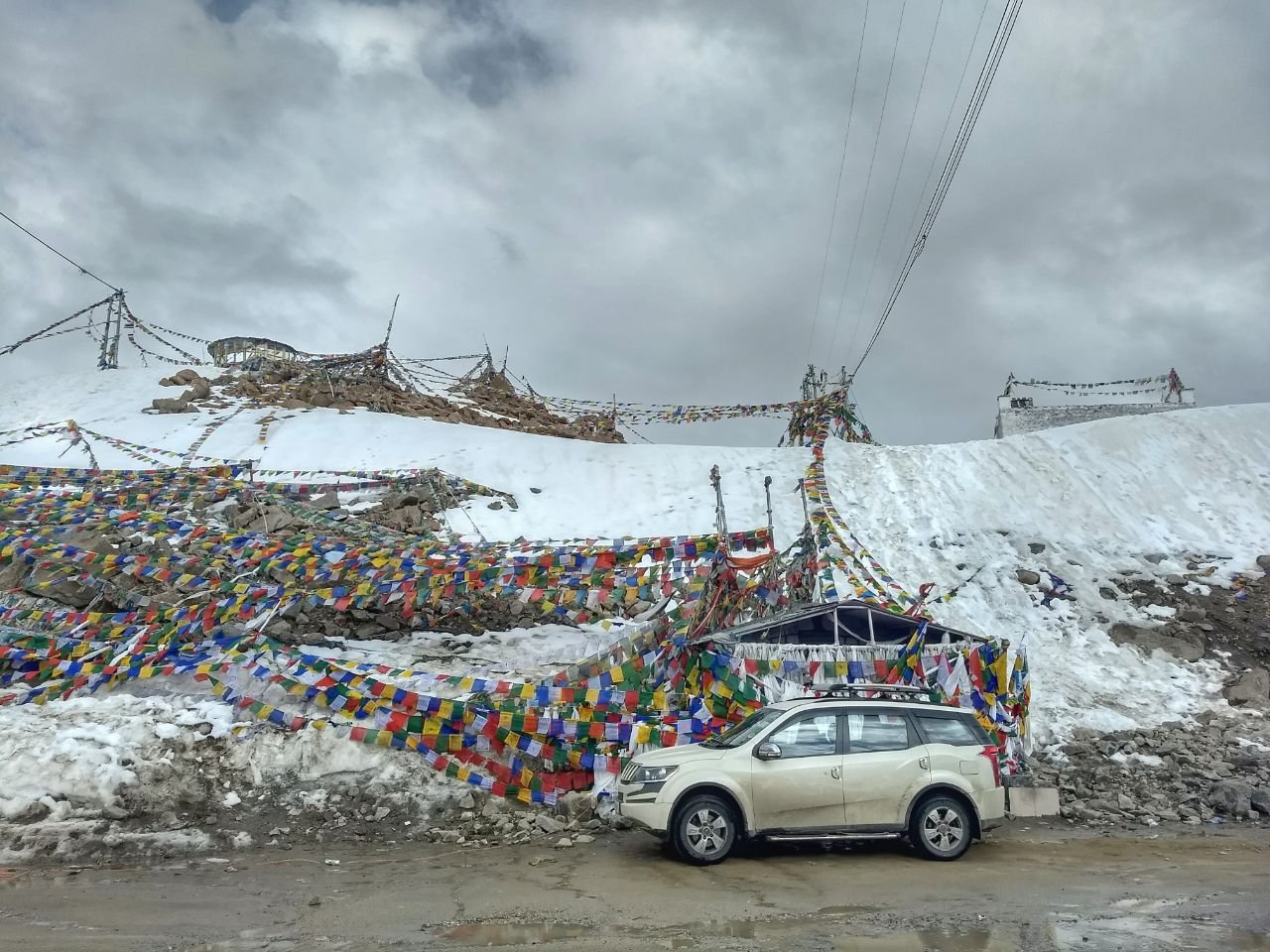
The top
70 km from Khardung la pass is Nubra valley. The greenery puts a smile on your face. And then you notice the sand dunes. At 11000 ft? With snow capped mountains around? Yes, that's the magic of Ladakh. This area is famous for its double hump camels too. Take a ride, walk in the sand and spend the night at a cosy homestay. Plenty of options.
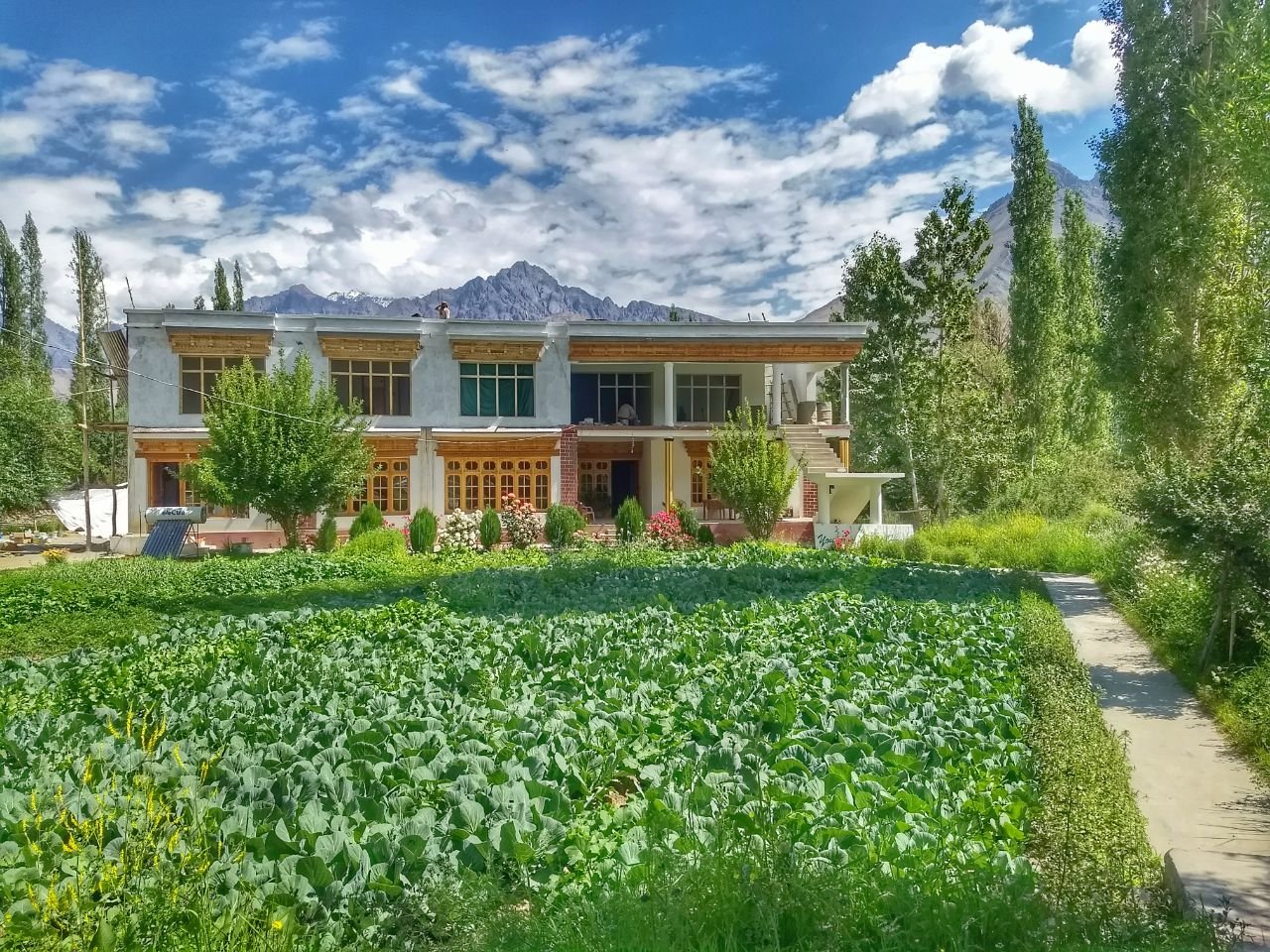
Stay at a cosy homestay in Nubra
PS: Erratic supply of fuel at Nubra. Drink lots of water to combat AMS (acute mountain sickness)
Day 6: What next? Welcome to the lake!
At 14000 ft, the blue waters of this massive lake freezes you in time. Its 134km long (major part in China) and one of the most beautiful spots in Ladakh. Three ways to get here from Nubra - via Leh (longest), via Wari la (tough) or via Agham-Shyok (dangerous at 5% of the route). Pick the last one. Its tough at 2-3 spots but otherwise fast and easy. Plus it has settlements at places to help you out. At one point you will be on black tarmac doing a comfortable 60-80 km/h and then suddenly you will see no road but a stream full of rocks. Negotiate it and back on tarmac. But do check with locals always.
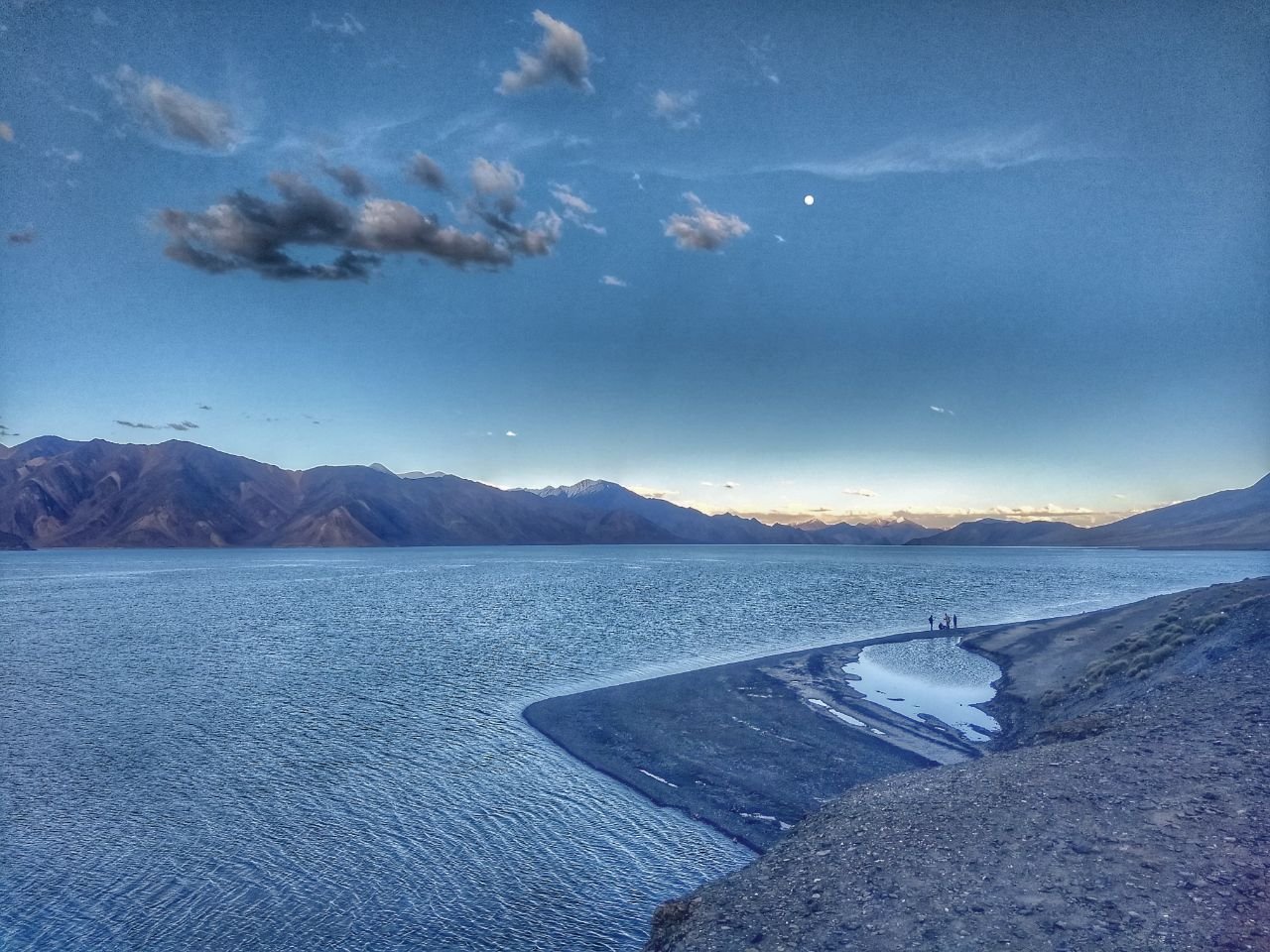
Thats how the Pangong looks in the evening. With a full moon
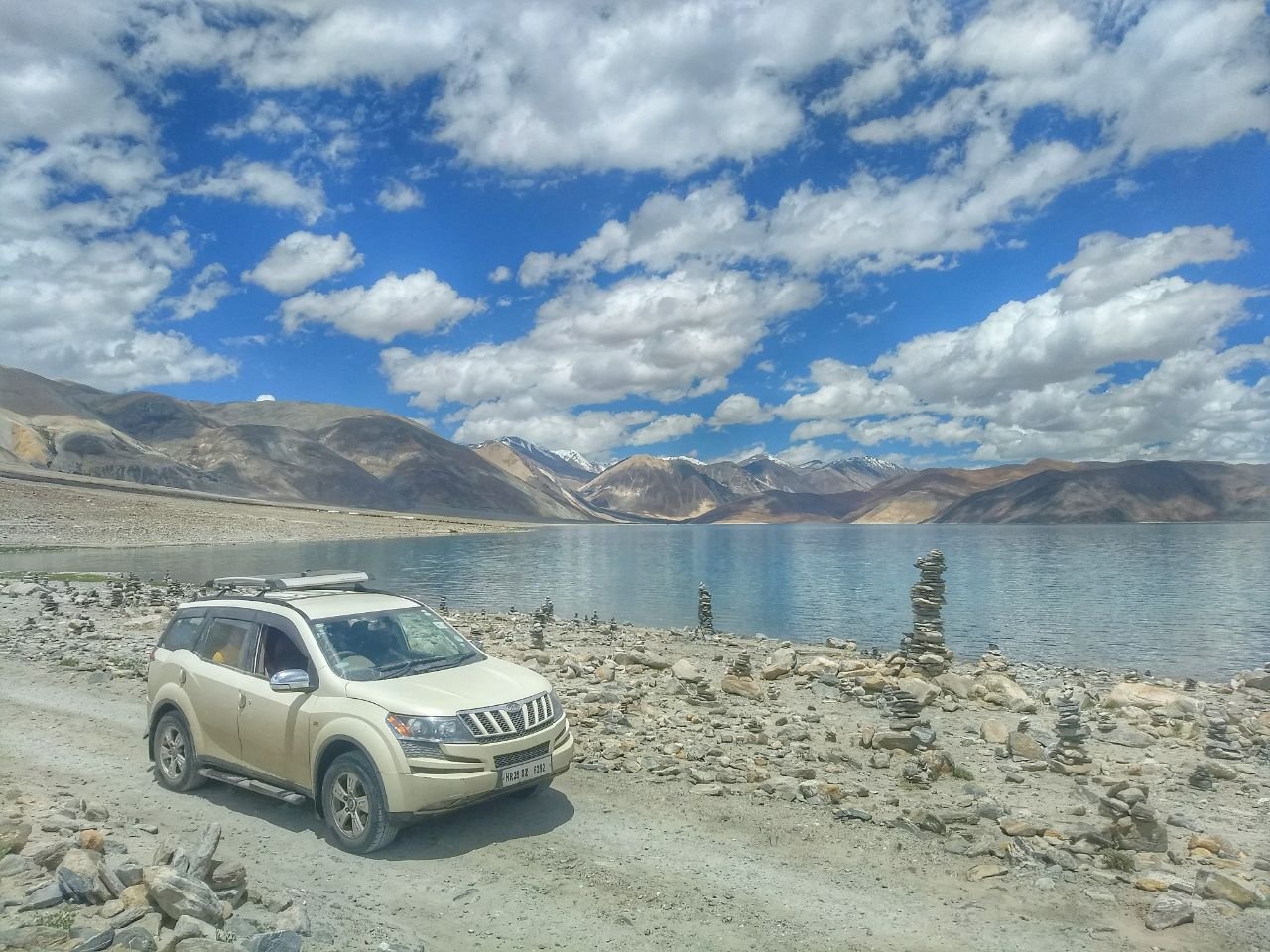
Drive ahead and you will not see a soul around - but yes, prayer stones in plenty
The first view of Pangong also has lot of restaurants around - ignore and drive ahead. If you want peace, a 10-20 min drive takes you to enough lake-side places to chill. Lie down and gaze. After dark, the sky becomes your private observatory. You can easily count the stars, draw the constellations and answer all those pending questions in life.
Night can be done in one of the numerous lake facing huts / camps.
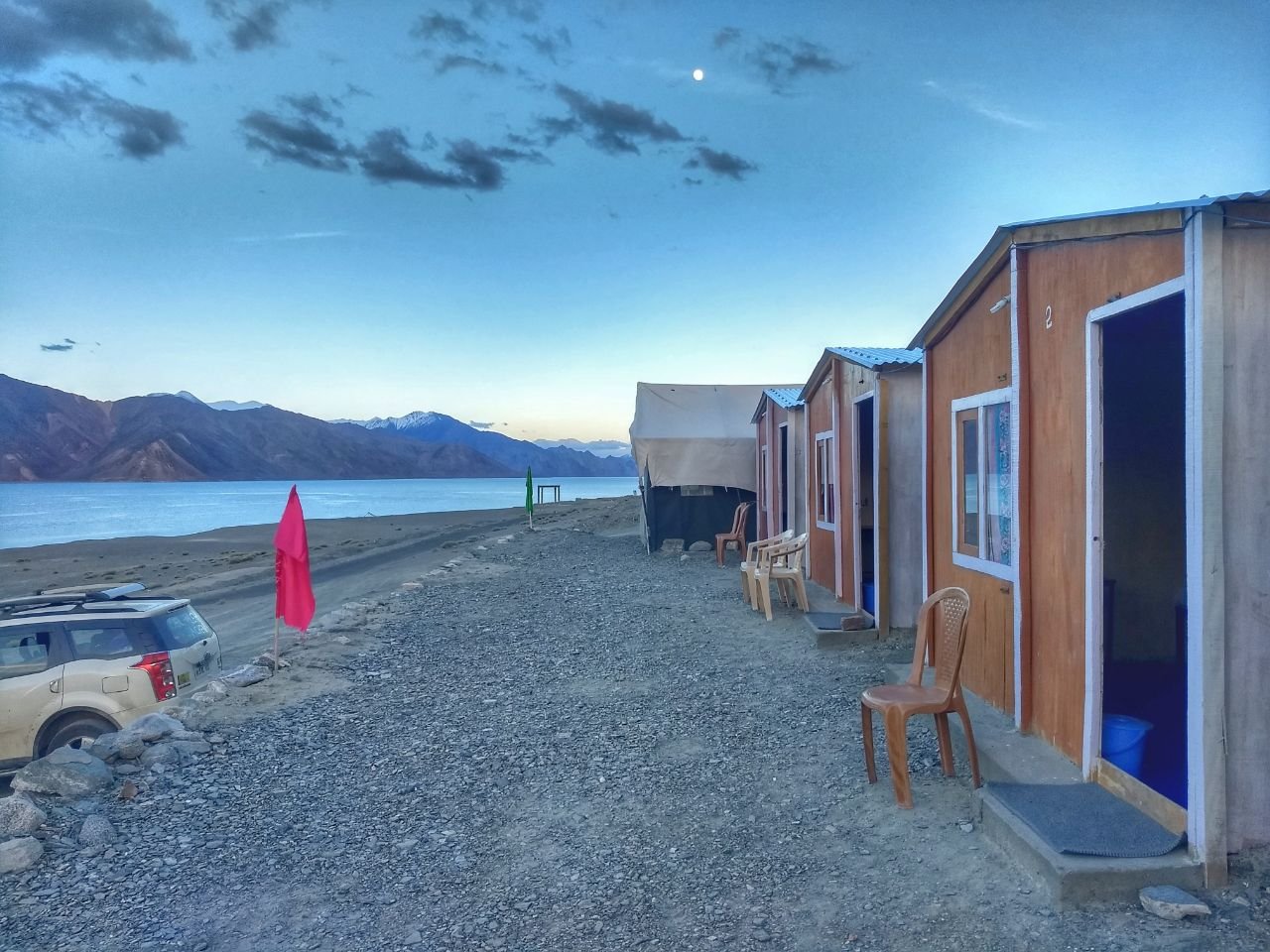
Lake facing cabins
PS: Don't walk into the lake. Never.
Day 7: I have seen paradise. Now what
From here on, you have options. You can continue to Hanle (very close to China border, needs special permission for non-Indians) or drive to Tso Moriri lake (tso means lake) which is smaller but equally beautiful. Either way , you will join back on the Manali - Leh highway from where you can head back to Manali and hit civilization again.
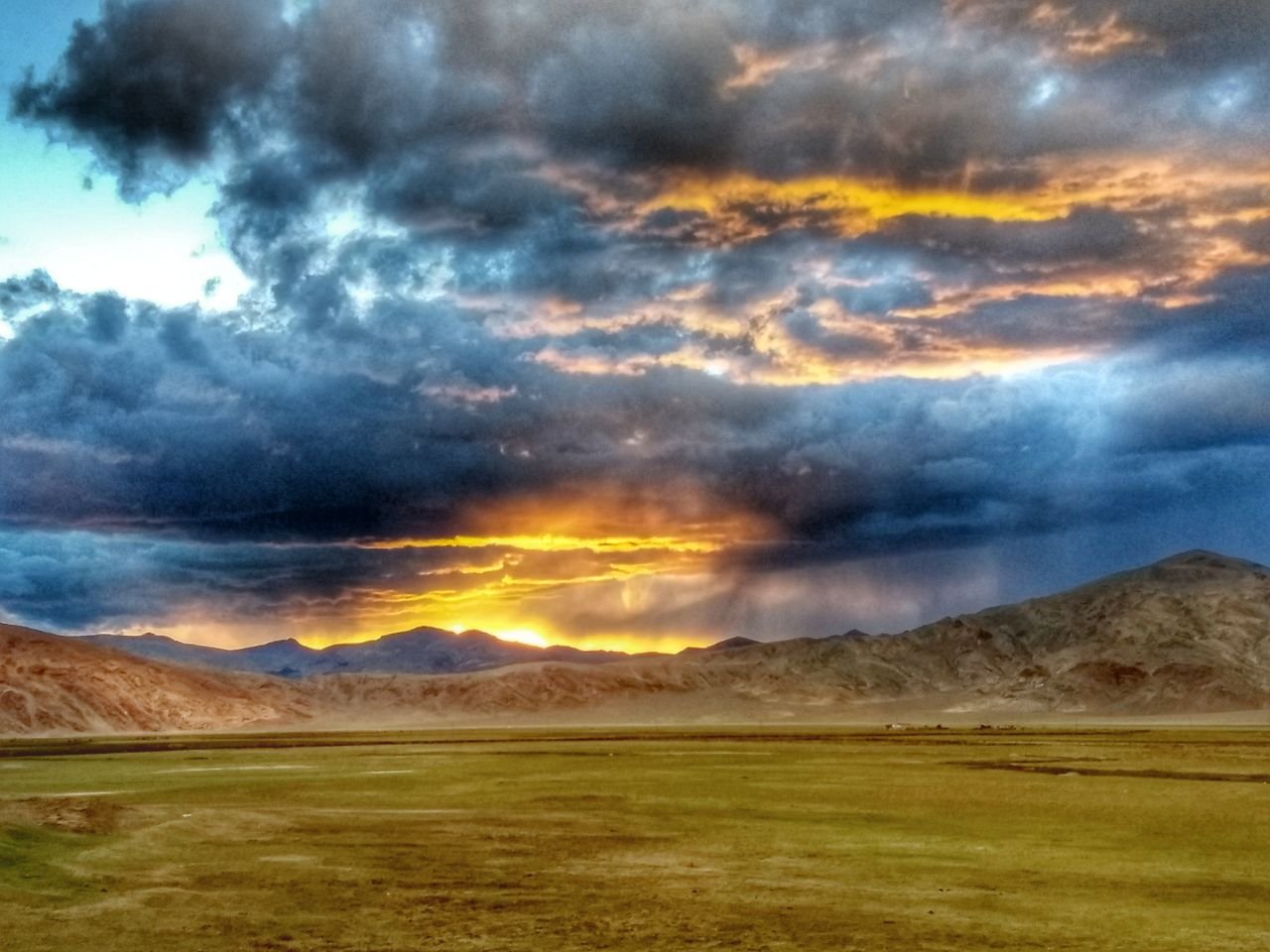
"fire in the sky" sunset
Do I need precautions?
Oh yes. A lot. If you decide to ride, make sure you have previous experience of riding on mountains. Carry extra fuel. All papers. Post-paid cellular connection. Basic medicines. A big problem in Ladakh is AMS or acute mountain sickness due to thin air. Make water your best friend - no alcohol and smoke for the first few days. Adjust your body to lower altitude first.
What else?
Ummm - a journey with a group of friends will mean memories for life. Ditto if you do it alone. If you dont want to ride / drive, hire a SUV / MPV from New Delhi. Temp can drop to below zero in Sep / Oct. Aug is dry but as I said, this area is unpredictable. From Day 2 onwards, civilization will disappear. Mules, marmots, wild ass, wild rabbits, fox etc will be visible easily. At times you will not see a single human being / vehicle for miles and miles.
I need a faster option
Fly to New Delhi, take an overnight luxury bus to Manali. From Manali, a hire a MPV to Ladakh. Fly back from Leh to New Delhi to your home. This way you still do to the road trip!
I am sure there are still a million questions in your head. Please feel free to pour them here :) You never know - we might just end up having the world's highest Steemit meet ever! And for this I need your support - please upvote if you think this is possible and this post deserves it :)
PS: All images taken by me on the recent trip. The vehicle you see is a locally made 2.2-litre 7-seater AWD SUV. Its called the Mahindra XUV5OO.
By the way, this is my 3rd post on #Steemit : simply loving it.
You can know more about me from my 1st post / introductory post here - @bunnypunia/hello-from-new-delhi-himalayan-lover-turned-auto-journalist-turned-hotelier
**UPDATED: **
Do see these 18 high resolution 360 degree views of Ladakh --> @bunnypunia/stunning-360-views-of-ladakh-come-explore-ladakh-virtually-with-me
Some more images to keep you hooked!
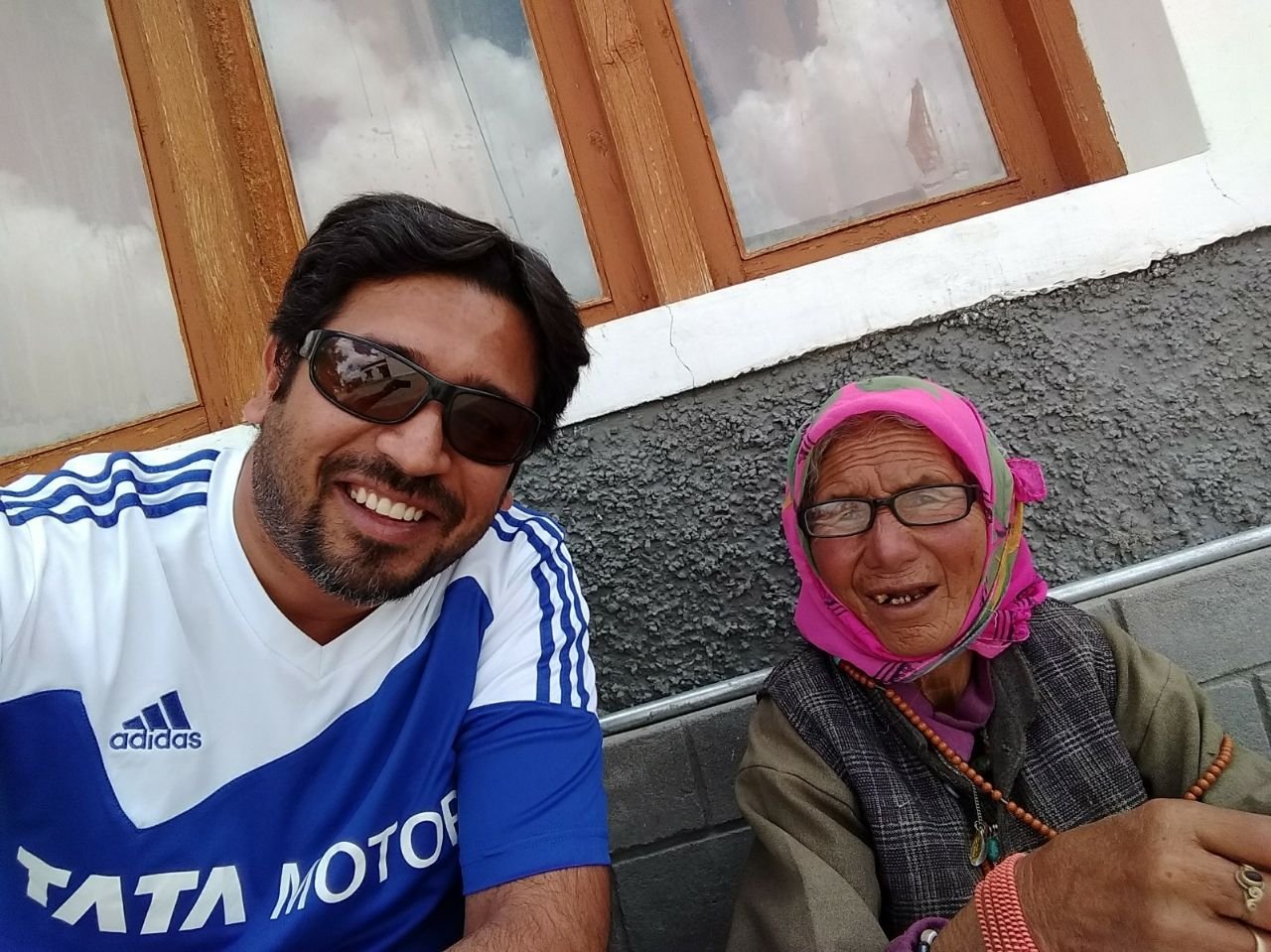
With a local lady. Their body features are a lot like Tibetians
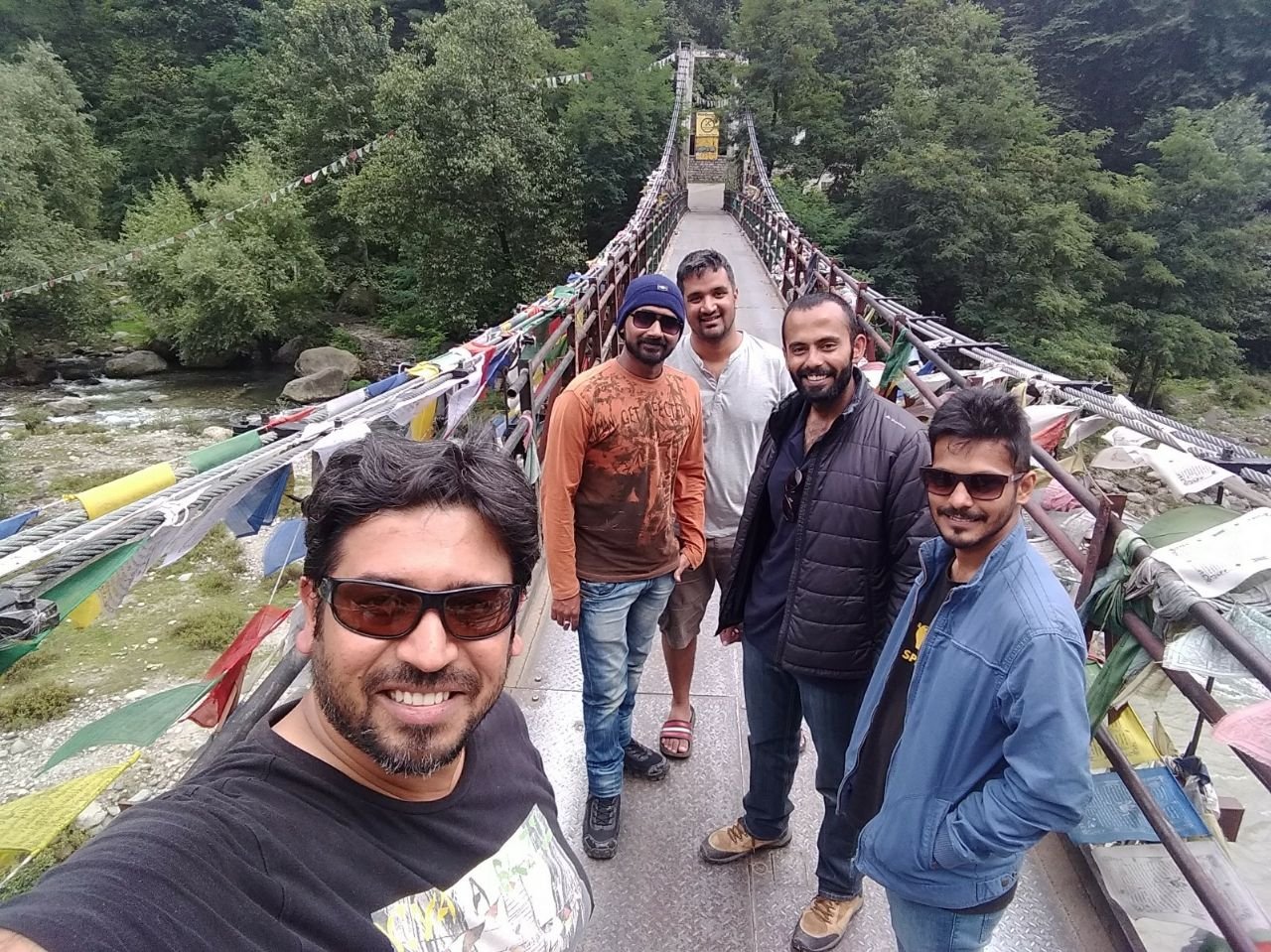
With my guests at Manali. Yes, I do conduct tours as well
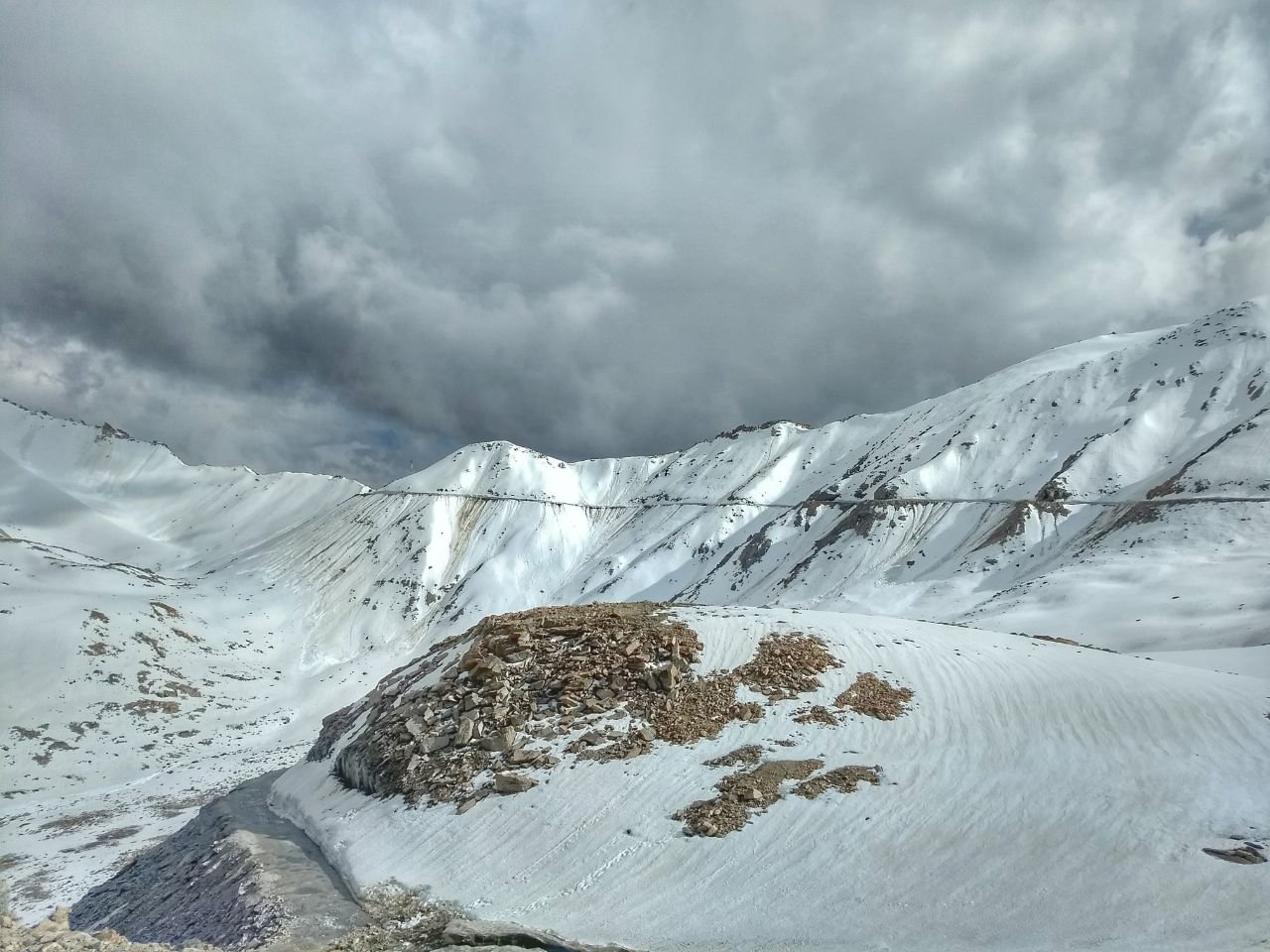
Snowed out Khardung la pass as seen from the other side (nubra side)

You find everything in Ladakh. Cold desert and yet a rainbow
